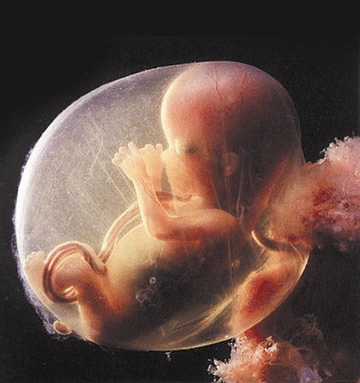
While many women in India and Pakistan have achieved success and freedom in the spheres of career and politics, the average woman in both countries is still in the troubled waters, especially when it comes to health and personal safety. Most horrific, however, is the often unreported or under-reported practice of abortion to ‘get rid’ of a female fetus – the killing of women before birth.
Domestic violence is quite prevalent a tragedy in the lower economic classes in both countries, sometimes leading to death of the victim. However, sex-specific abortions are the extreme cases of violating women’s rights as this practice openly denies the very right of women to exist.
In India, the female population lags behind males such that, for every 1000 males, there are 927 females in the country – much less than the global average of 1050 females for every 1000 males. One of the main causes of this low proportion in India is now said to be the abortion of female fetuses. In Pakistan too, female population is persistently less than that of males, though the reports of female-fetus abortions is extremely rare.
Ignorance of human rights and lack of basic education are the root causes of this form of gender-selective killing before birth. More immediate seems to be the role of our lopsided values placed on both sexes; men are viewed as bread-winners and also the providers of shelter and home care for parents in their elderly years.
Women, on the other hand, are seen as ‘home guests till marriage’ as they leave to live with their husbands and take care of their in-laws. In addition, a woman takes her share in the ancestral property out to her husband – leaving the patriarch at a loss. These influences are magnified in the social psychology of lower social classes and hence the impulse for not allowing women to be born to this world.
The ethical impact of anti-female abortions is enormous; it stands in stark contrast to the right to exist only because of one’s sex. More subtly, it strengthens the centuries-old prejudice that women are ‘bad’. While India has long introduced laws against tests to determine the gender of the fetus for non-medical reasons, effective implementation of these laws does not exist beyond paperwork in many parts of the country.
In Pakistan, ultrasound technology is now available at private clinics, especially with gynecologists, where it is used to foretell the fetal gender. However, according to a medical doctor in the obstetrics filed, most lower class people consider abortion as a great sin and abstain from it.

In the famous 2001 Bollywood movie Lajja, the character Vaidehi (Manisha Koirala) escapes from her oppressive husband to save her unborn baby from her husband’s possession. When asked by Janaki (Madhuri Dixit) whether she wants a boy or a girl child, Vedahi answers, ‘given the circumstances here, I’ll say a boy will be better.’ Of course, Vaidehi’s point is the expression of her grievance over the torture of women in various forms; her statement connotes the ‘need’ for things to get better for women or else the second sex better not enter this brutal world at all.



